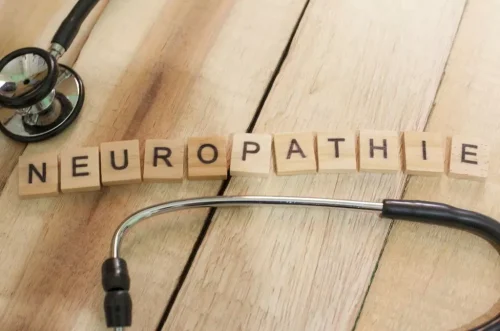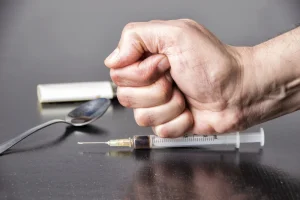• The average person will have sex 4,239 times during their life.
• Taking photos lags your memory. You’re more likely to remember details of an event/situation when you took no photos at all.
• Fruit juice is not always a healthier drink. Some fruits have a sugar content just as high as soft drinks. Go for vegetable juice instead.
• The average person’s heartbeat rate is about 80 bpm.
• Honey never spoils. Its chemical composition allows it a possibly infinite shelf life. It has been documented that honey has been stored for thousands of years in still found in good shape.
• High cholesterol is physically visible in your body. It is deposited under the skin to form conspicuous bumps. Such high levels of cholesterol puts you at risk of heart disease.
• Thyroid problems affect up to 70% of middle-age women. Most do not know it since the thyroid nodules are small and symptomless.
• ‘Text-neck’ is now a medically recognized health condition. It refers to the strain exerted on the cervical spine when you regularly angle your head downward to look at your phone.
• Exercising when pregnant improves the baby’s brain function resulting in a smarter baby.
• While this can’t be said for everybody, the average person will say around 5,000 words every single day.
• Your fingerprints aren’t the only part of your body which are completely unique to you. Your tongue also has a unique pattern and print to it.
• The average person will walk around 100,000 miles during their lifetime. It’s time to start the pedometer!
• Work related stress increases your chances of developing type 2 diabetes.
• Always waking up with under-eye circles? Try taking an antihistamine before sleeping and note the difference.
• One person consumes about 3 tons of food in a lifetime. That’s the weight of about 6 elephants! We’re also wondering where all that food goes to.
• Fingerprints always grow back to its original form despite how damaged they become.
• If you’re a man, the smallest cells in your body are sperm cells.
• Avocado is actually a fruit, and has the highest protein content of all fruits.
• The smallest cell in a man’s body is the sperm cell. It is also one of the most complex cells in the male body as well.
• Cold temperatures can have a positive impact on your health. Cooling the body reduces inflammation, allergies and improves concentration.
• Nobody really knows how many nerve cells there are in the brain. There are so many, that it would take you around 3,000 years to count each one.
• Trying to stop overeating? Mindful eating is the most effective way of regulating your portions. Focusing on the food and avoiding distractions as you eat helps you recognize the signs of fullness and stop eating.
• The cornea does not receive blood supply. It receives oxygen directly from the air.
• It’s much less effort to be happy – you’ll use 17 muscles to smile vs. 43 to frown and be miserable.
• Can’t remember your dream from last night? That’s perfectly normal, since most people will forget 90% of their dreams.
• Anxiety affects your sense of smell, making neutral scents unpleasant while bad smell gets even worse.
• An irregular sleeping schedule increases the chances of weight gain.
• The amount of bacteria in your entire body is ten times more than the amount of human cells.
• Humans are constantly shedding particles of skin throughout the day. You’ll mainly notice this when you get out of the bath or shower. By the time you’re 70 years old, you will have shed around 100 pounds of skin.
• Riding a roller coaster could help you pass a kidney.
• If you’re a female and you feel like your heart beats quicker than your male counterparts, you’re not wrong. Women’s hearts are proven to beat faster than men’s.
• Stress makes you gain weight. Cortisol, the main stress hormone, triggers food craving as well as storage of fat especially around the belly.
• For each cigarette that you smoke, you reduce your life expectancy by 11 minutes.
• Consuming red meat worsens body odor.
• Owning a dog lowers your stress levels. Turns out a canine friend is good for your health.
• Humans are the only animals with chins.
• Being locked in a totally sealed and closed room wouldn’t cause you to die from a lack of oxygen. You would eventually die, but from carbon dioxide poisoning.
• If you weigh 150 pounds, 21 pounds of this is the weight of your skeleton.
• Research on heart attacks was carried out, and one of the conclusions was that Monday is the most likely day to have a heart attack – be careful!
• Babies seem to have big eyes since the eyeball never actually grows. On the other hand, your ears and nose never stop growing!
• While it’s not the largest muscle, the award for the strongest muscle goes to the masseter, more commonly known as the jaw muscle.
• Your blood consist 8-10% of your body weight; which is about 1.2 to 1.5 gallons of blood for an adult.
• By the time you’re a fully-grown adult, approximately a quarter of all your bones are in your feet.
• Exercise is more effective than medication in relieving mild depression.
• The foot is one of the most ticklish parts of the human body.
• The chances of living to be 100 years old are very slim for most people, and only one out of every two billion people will live to be 116 years old.
• You burn 72 calories in a day by working while standing instead of sitting.
• It’s scientifically proven that children grow faster in the spring, so you’re not imagining things when your little nephews and nieces seem to be suddenly older by the summer.
• Our thumbs have a pulse. You can also measure your pulse through your neck, chest, and wrist.
• More than half the bones in the body are located in the hands and feet, accounting for 106 out of the total 206 bones in the body.
• Deep breaths help you lose body fat. As you breathe, fat is converted into carbon dioxide and exits the body through the lungs.
• Ginger is an effective remedy for indigestion, bloating and even menstrual cramps.
• One cell of bacteria can multiply into millions of cells in less than 24 hours.
• Expressing gratitude gives you an instant mood boost. One more reason to say thank you more often.
• It’s not uncommon for your feet to sweat a lot. Every day, your feet can produce roughly one pint of sweat. Ew!
• Our taste buds seem to change throughout our lives, but by the age of 60, the average person has lost half their taste buds. This is why older people don’t seem to care as much about bitter or unusual tastes.
• When parents exercise regularly, they’re likely to raise similarly active kids with keen interest in physical activity and sports.
• The human brain is very powerful – it uses as much energy as a 10-watt light bulb.
• In some parts of Malaysia, it is believed that bathing babies in beer protects them from disease.
• You will not achieve a flat stomach by doing sit-ups (crunches) since this workout only affects your abs as opposed to your core muscles.
• The human skull has 29 different bones. 4 major structures form the skull.
• Every 3-4 seconds, around 50,000 cells in your body will die and be replaced by new ones.
• Hiccups can last a very long time. The record is held by Charles Osborne – this poor man had hiccups for a total of 68 years without stopping!
• Sugary drinks are the single most fattening component of modern diet.
• Do you want to boost your focus and memory before a test or a crucial meeting? Simply sniff rosemary and feel the instant effect.
• During the average lifetime, your heart will pump a grand total of 182 million liters of blood.
• 25% of bones in human adults are on their feet.
• Wondering about the largest muscle in the human body? The gluteus maximus wins the prize for that one.
• No matter how many times you try, it’s impossible to sneeze and keep your eyes open at the same time.
• People burn more calories being asleep than they do by watching the TV. More reason to take a nap!
• A tick bite can make you allergic to red meat.
• In your mouth alone, there is more bacteria than there are people in the entire world.
• Human teeth are the only part of the body that cannot heal itself.
• After a long day at work, you will be around 8mm shorter than you were in the morning. If you feel taller when you wake up, it’s because you are.
• Fingerprints are unique to each person, making them an amazing phenomenon. Adding to this is the fact that they’re developed within just three months of conception, meaning you were totally unique from the start.
• You understand better when reading an actual book as opposed to reading on screen.
• Just 10 minutes of high-intensity daily workout can help you lower insulin resistance, reduce your body fat and improve your overall health.
• Every 10 years, the human skeleton repairs and renews itself. Essentially, you have different bones now than you did 10 years ago!
• When you touch something, a message is relayed to your brain at a speed of 200 km/h.
• Meditation boosts your mental health more than taking a vacation.
• Men forget more easily than women. You probably suspected that already.
• Whether inhaling or exhaling, you only use one nostril at a time. Nostrils actually alternate every few hours, with only one working while the other takes a break. Go ahead; place a finger under your nose to ascertain for yourself.
• Shopping after a yoga session helps you make better purchasing choices and avoid overspending.
• As well as having faster heart beats, women blink twice as much as men as well.
• Some people have an extra bone in the knee known as a fabella, and the number of such people has increased significantly over the years.
• Make sure you wear a hat this winter – a total of 80% of your body heat is lost through your head, so it’s time to invest in a good woolly beanie.
• The purpose of the eyebrow, it is believed, is to protect the eye from sweat.
• An average adult spends about 12 hours every month sitting on the toilet.
• When you sneeze, it could potentially travel at 100 miles per hour (or even faster!).
• You consume up to 45 teaspoons of sugar every day indirectly; hidden in drinks, processed foods, foods and so on.
• Procrastination is an inherited behavior.
• Around 70% of people tilt their heads to the right rather than the left when kissing somebody else.
• The scent of apples can ease claustrophobia.
• There are more bacteria found in the human mouth than there are humans in the whole world.
• Everybody produces large quantities of saliva, and during the average lifetime, a human will have produced around 25,000 quarts of saliva, which is enough to fill two swimming pools!
• Exercise can lessen the severity of chronic pain. It could be grueling at first, but some simple exercise guided by a doctor can improve mobility and flexibility.
• If you thought steel was strong and durable, your bones are five times stronger! It’s difficult to break them, but that’s why it hurts so much when you do.
• It’s not just your cheeks that turn red and expose your embarrassment when you’re blushing. Your stomach also turns red, but not many people will notice this.
• While you’re flying in an airplane, your hair will grow at twice the rate it usually does. That’s why you seem to need more regular haircuts when you’ve been traveling a lot.





